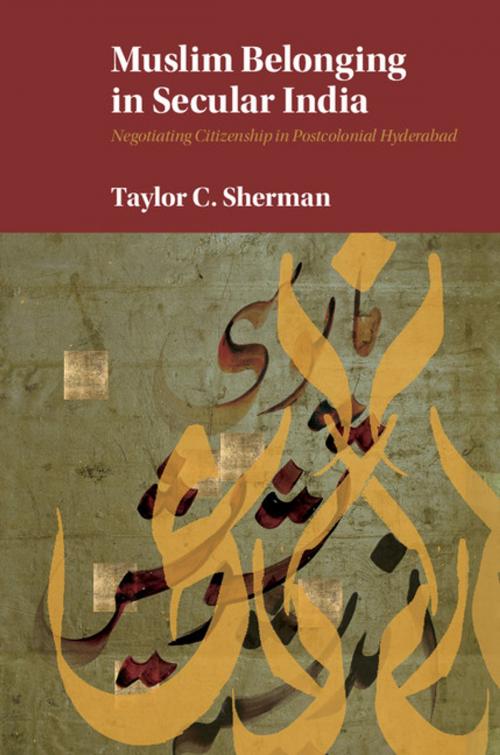Muslim Belonging in Secular India
Negotiating Citizenship in Postcolonial Hyderabad
Nonfiction, History, Asian, India, Religion & Spirituality| Author: | Taylor C. Sherman | ISBN: | 9781316365717 |
| Publisher: | Cambridge University Press | Publication: | August 25, 2015 |
| Imprint: | Cambridge University Press | Language: | English |
| Author: | Taylor C. Sherman |
| ISBN: | 9781316365717 |
| Publisher: | Cambridge University Press |
| Publication: | August 25, 2015 |
| Imprint: | Cambridge University Press |
| Language: | English |
Muslim Belonging in Secular India surveys the experience of some of India's most prominent Muslim communities in the early postcolonial period. Muslims who remained in India after the Partition of 1947 faced distrust and discrimination, and were consequently compelled to seek new ways of defining their relationship with fellow citizens of India and its governments. Using the forcible integration of the princely state of Hyderabad in 1948 as a case study, Taylor C. Sherman reveals the fragile and contested nature of Muslim belonging in the decade that followed independence. In this context, she demonstrates how Muslim claims to citizenship in Hyderabad contributed to intense debates over the nature of democracy and secularism in independent India. Drawing on detailed new archival research, Dr Sherman provides a thorough and compelling examination of the early governmental policies and popular strategies that have helped to shape the history of Muslims in India since 1947.
Muslim Belonging in Secular India surveys the experience of some of India's most prominent Muslim communities in the early postcolonial period. Muslims who remained in India after the Partition of 1947 faced distrust and discrimination, and were consequently compelled to seek new ways of defining their relationship with fellow citizens of India and its governments. Using the forcible integration of the princely state of Hyderabad in 1948 as a case study, Taylor C. Sherman reveals the fragile and contested nature of Muslim belonging in the decade that followed independence. In this context, she demonstrates how Muslim claims to citizenship in Hyderabad contributed to intense debates over the nature of democracy and secularism in independent India. Drawing on detailed new archival research, Dr Sherman provides a thorough and compelling examination of the early governmental policies and popular strategies that have helped to shape the history of Muslims in India since 1947.















